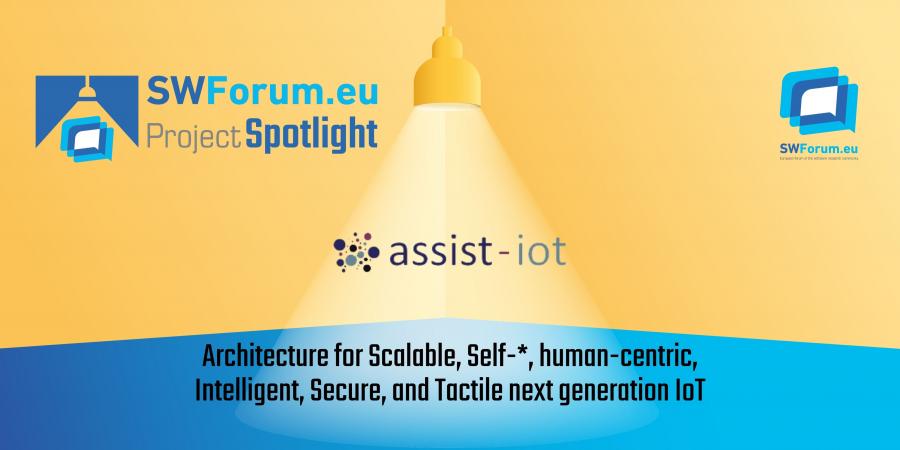
The SWForum.eu is featuring the ASSIST-IoT project as the project spotlight from 1-5 August 2022.
The ASSIST-IoT project is a 36-month Research Innovation Action (RIA) project funded by within the EU H2020 ICT-56-2020 research program that was successfully launched in November 2020.
The evolution of human-machine interaction is just as remarkable as the technological advances that made the impossible possible and changed the way we live. The relationship with machines has been redefined: machines moved from tool to partner and from automation to autonomy. The Internet of Things is connecting physical, digital, virtual, and cyber worlds, leading to a new evolution in human-machine interaction. The next-generation tactile internet will allow real-time interaction between humans and machines, as well as between machines. The EU-funded ASSIST-IoT project will develop the reference architecture in which intelligence can be distributed among nodes by implementing artificial intelligence and machine learning close to data generation and actuation, and hyper connecting nodes, in the edge-cloud continuum, over softwarised smart networks.
ASSIST-IoT will provide an innovative reference architecture, envisioned as a decentralized ecosystem, where intelligence is distributed among nodes by implementing AI/ML close to data generation and actuation, and hyper connecting nodes, in the edge-cloud continuum, over softwarised smart network. Smart networks will be realised by means of virtualized functions, with clear separation of control and data planes, facilitating efficient infrastructure programmability. Moreover, the action will follow a DevSecOps methodology to ensure the integration of security, privacy, and trust, by design, in all aspects of the envisioned ecosystems.
ASSIST-IoT will be supported by several pillars:
- (i) innovative IoT architecture, to adapt to the NGI paradigm, with a three-dimensional approach, including intelligence, security, and privacy by design, supporting decentralized collaborative decision-making;
- (ii) moving from semantic interoperability to semantically-enabled cross-platform, cross-domain data transactions, within decentralised governance, DLT-anchoring transaction security, privacy, and trust;
- (iii) development and integration of innovative devices, supporting context-aware computing, to enable effective decision-making close to events;
- (iv) introduction of self-* mechanisms, supporting self-awareness and (semi-)autonomous behaviours across IoT deployments, and
- (v) Tactile Internet support for latency applications, like AR/VR/MR, and human-centric interaction with IoT components.
Results of the action will provide the foundation for a comprehensive practice-based methodology, for future designers and implementers of smart IoT ecosystems.
Finally, to validate research results, develop solutions, and ensure their wide applicability, extended pilot deployments with strong end-user participation will take place in (i) port automation; (ii) smart safety of workers, and (iii) cohesive vehicle monitoring and diagnostics, bringing about the domain-agnostic aspect of the approach.
Learn more about the ASSIST-IoT project.